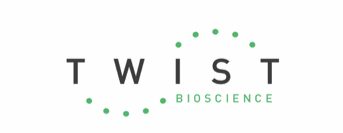Channels
Special Offers & Promotions
Twist Bioscience Selected as DNA Synthesis Provider for DNA Data Storage Project under Intelligence Advanced Research Projects Activity (IARPA) Molecular Information Storage (MIST) Program
Contract Focused on Making DNA Data Storage Commercially Accessible
Twist Bioscience Corporation, a company enabling customers to succeed through its offering of high-quality synthetic DNA using its silicon platform, has announced that it has been selected as a subcontractor to Georgia Tech Research Institute (GTRI) to undertake the DNA synthesis portion of the Molecular Information Storage (MIST) program through a contract with the Intelligence Advanced Research Projects Activity (IARPA). DNA has the ability to store large amounts of data over long periods of time in a very dense format, however today this storage technology is not cost efficient, nor widely available. The aim of the project, termed Scalable Molecular Archival Software & Hardware (SMASH), is to make long-term DNA data storage accessible and commercially viable within the next three to five years.
“With digital data growing at an exponential rate, there is increasing interest and excitement about using nature’s storage medium, DNA, to store digital data,” said Emily M. Leproust, Ph.D., CEO and co-founder of Twist Bioscience. “With the government’s commitment to fund this exciting new area of storage, we believe that as part of this consortium of specialists, we can truly revolutionize the DNA synthesis process, and reduce the cost of synthesis for DNA data storage by many orders of magnitude.”
Twist Bioscience may receive up to $9.15 million in fees under the multi-phase contract awarded to GTRI, which is worth up to $25 million. The deliverables under the contract for Twist Bioscience consist of creating a DNA synthesis platform on silicon that “writes,” or synthesizes, enough DNA per day to allow the cost of storing digital data to be as low as $1 per gigabyte. This is a reduction in the cost of approximately six to seven orders of magnitude from the cost of DNA data storage today, by Twist internal estimates.
In addition to the $9.15 million earmarked for Twist, there is an additional $5.5 million slated to bolster DNA synthesis through new chip design with standard CMOS electronics that are able to write DNA using the efficiencies of current semiconductor technologies. This research will be conducted at GTRI, and will then come to Twist for commercial implementation.
The primary contract is held by the GTRI, with subcontractors Twist Bioscience to conduct DNA synthesis, University of Washington/Microsoft teams bring system architecture, data analysis and coding expertise and Roswell Biotechnologies to provide a high throughout DNA data reader chip and platform.
“Fifty years ago, DNA data storage was considered science fiction – today, it is science with a path toward broad implementation,” said Dr. Leproust. “We expect in the next three to five years, with the proper amount of government and industry investment, it will become a reality for long-term storage.”
Dr. Leproust continued, “We see the first applications of commercial DNA data storage being long-term markets where current storage is not meeting the needs of the industry. This includes enterprise, where governing bodies require that the retention of large volumes of data for a particular project like a clinical trial or airplane design be kept for decades, government bodies, which retain vast amounts of historical information, and the consumer market for large archives of photos and videos.”
Today, Twist manufactures more than one million oligonucleotides on a single silicon chip using semiconductor technology. The company is now working toward the next generation of silicon chips that will allow the company to synthesize or write 10 gigabytes of DNA on each silicon chip. While the DNA Twist makes today is of exceptional quality, DNA used for digital storage can be imperfect, with computer algorithms correcting the errors efficiently.
How to Store Digital Data in DNA
To encode digital data into DNA, first, digital files are converted from the binary code using 0s and 1s of digital data into sequences of A, C, T and G. Twist Bioscience then synthesizes short segments of DNA (approximately 200 to 300 bases or positions) in the sequence order provided and a coding efficiency of approximately 1 bits per base. Each short DNA segment contains a sort of barcode to indicate their place within the overall sequence. Specific segments of DNA can be found using this barcode to be copied or recalled as needed, eliminating the need to decode and sequence the entire file when only a small portion is needed for a particular task. The files can be recovered perfectly by an ordinary DNA sequencer due to error-correcting encoding schemes used when writing the data.
About Twist Bioscience Corporation
Twist Bioscience is a leading and rapidly growing synthetic biology company that has developed a disruptive DNA synthesis platform to industrialize the engineering of biology. The core of the platform is a proprietary technology that pioneers a new method of manufacturing synthetic DNA by “writing” DNA on a silicon chip. Twist is leveraging its unique technology to manufacture a broad range of synthetic DNA-based products, including synthetic genes, tools for next-generation sequencing (NGS) preparation, and antibody libraries for drug discovery and development. Twist is also pursuing longer-term opportunities in digital data storage in DNA and biologics drug discovery. Twist makes products for use across many industries including healthcare, industrial chemicals, agriculture and academic research.
Media Partners



